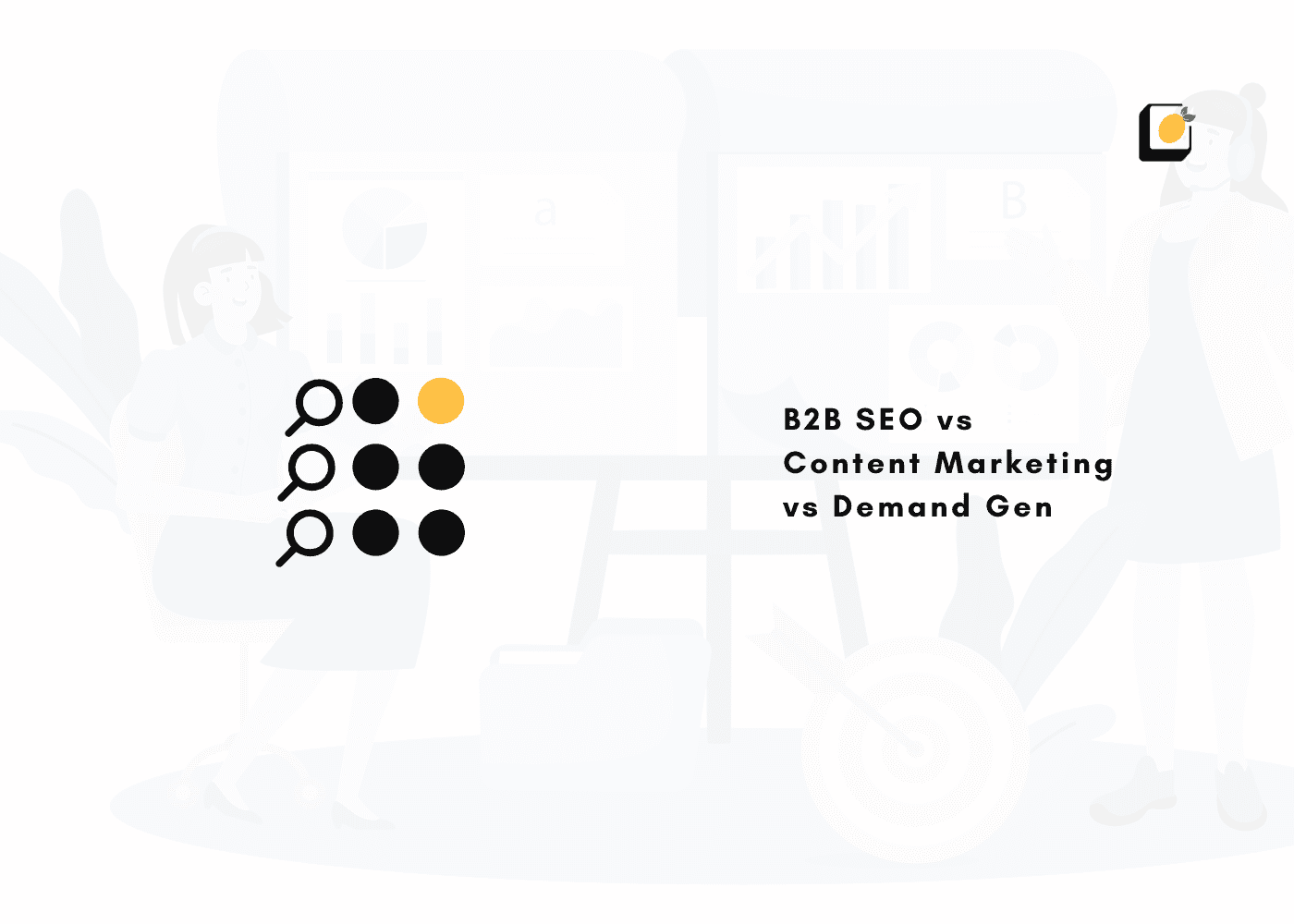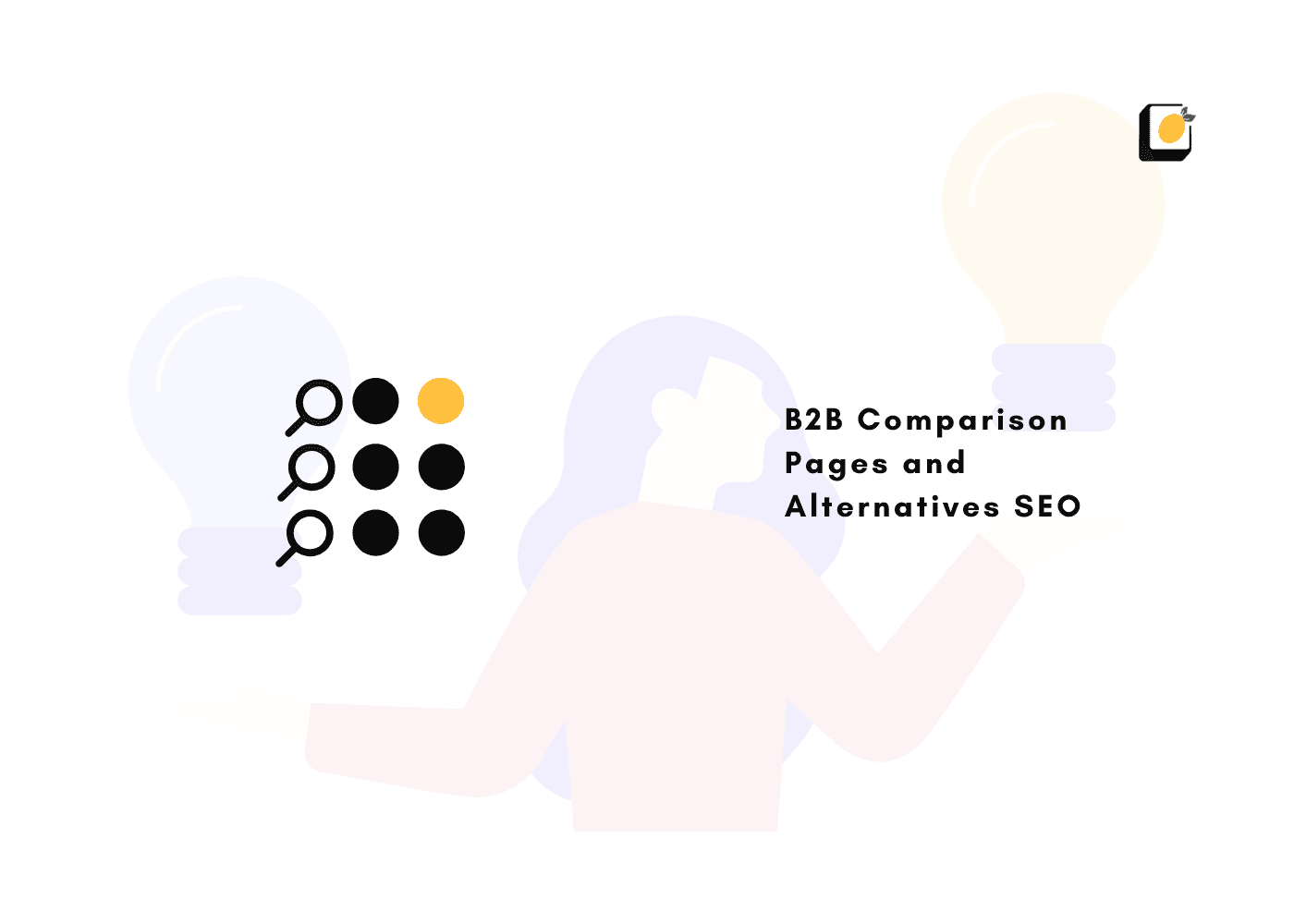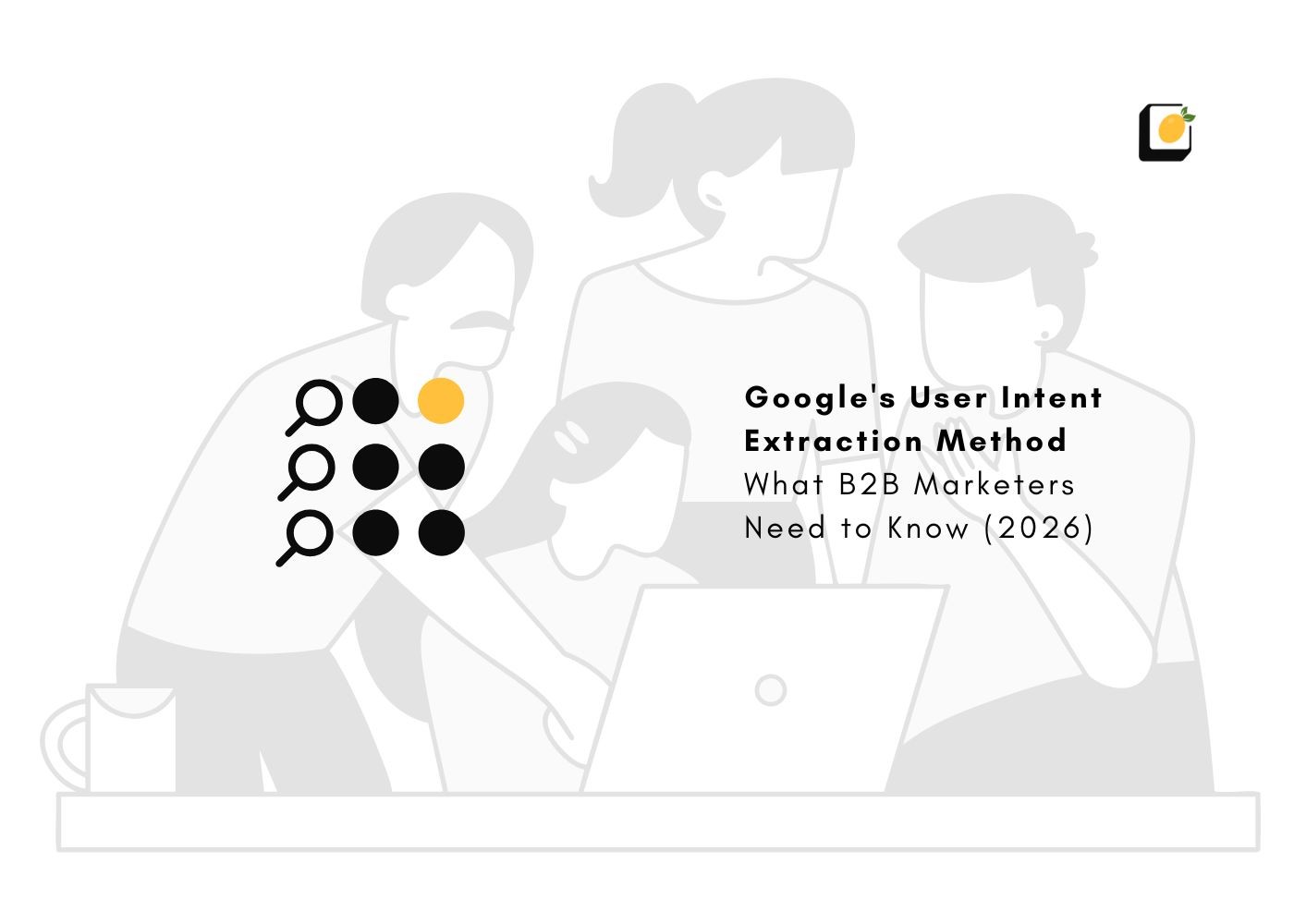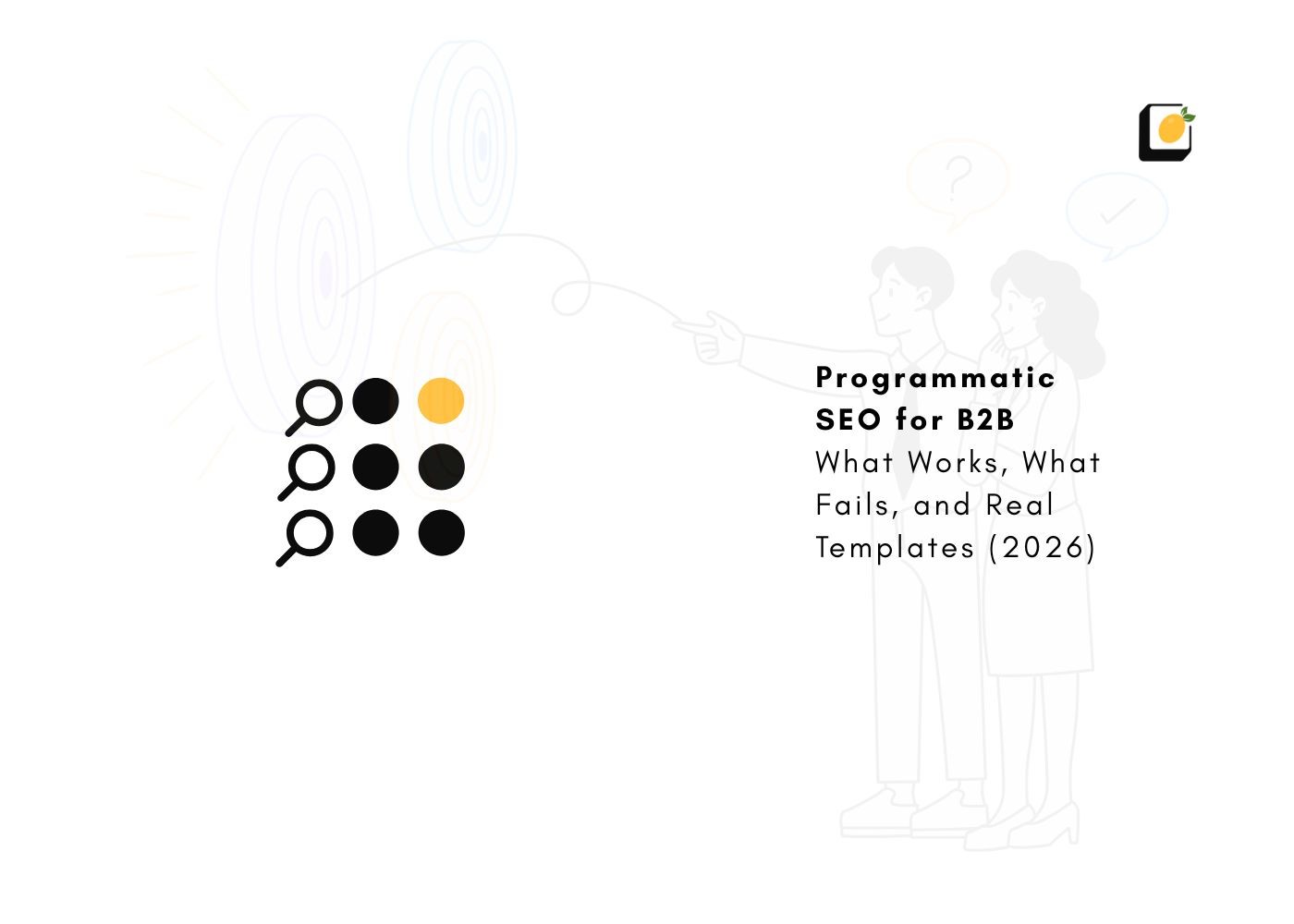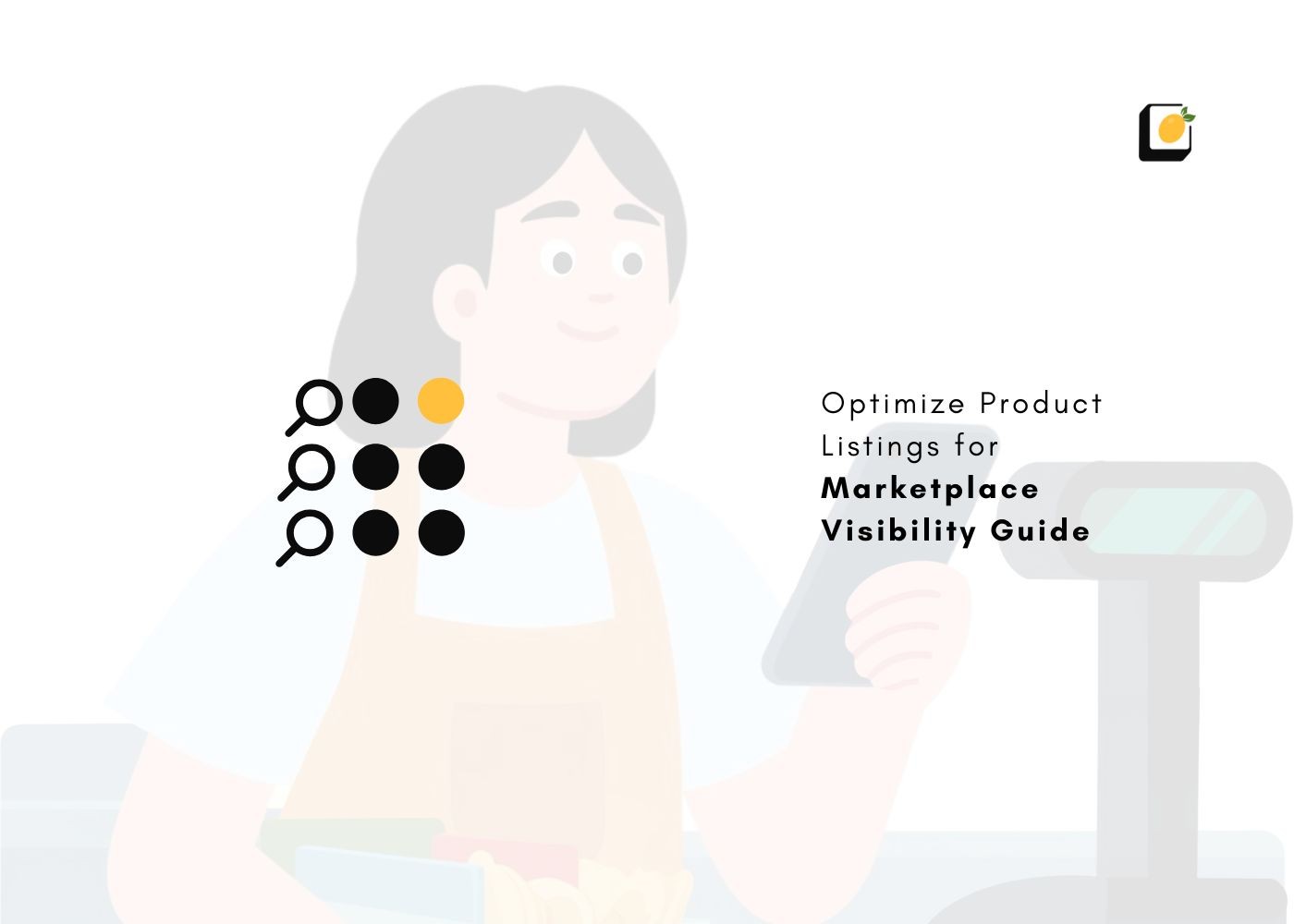AI Search Optimization Guide 2025 For Local SEO for Small Business
July 18, 2025
Join 500+ brands growing with Passionfruit!
Local SEO has become the lifeline for small businesses competing in today's digital marketplace. While big corporations pour millions into marketing campaigns, smart small business owners are winning customers right in their neighborhoods through strategic local search optimization. The game just got more interesting with AI search engines like ChatGPT, Perplexity, and Google's AI Overviews changing how people find local services.
Your customers aren't just googling "restaurants near me" anymore. People ask ChatGPT for personalized recommendations, use voice search to find "the best plumber who can come today," and rely on AI to filter through hundreds of local options. Small business GEO (Generative Engine Optimization) combines traditional local SEO for small businesses with AI-optimized strategies that help you appear in these new search experiences.
Most small business owners still focus only on Google rankings, missing massive opportunities in AI search platforms where competition remains lighter and customer intent runs higher. The businesses that adapt to AI search optimization now will dominate local markets while others struggle to understand why their traditional SEO efforts produce diminishing returns. Understanding how AI is transforming SEO landscapes helps small business owners prepare for these fundamental changes.
What Makes Local AI Search Different
AI for SEO has fundamentally changed how search engines understand and present local business information. Traditional search algorithms relied heavily on keyword matching and basic location signals. AI search engines analyze context, user intent, conversational patterns, and real-time factors to provide personalized recommendations.
When someone asks ChatGPT "What's the best family restaurant within 10 minutes of downtown that takes reservations tonight?"The AI considers multiple factors simultaneously: location proximity, cuisine preferences, availability, family-friendly atmosphere, and reservation systems.
AI SEO optimization means structuring your business information so AI engines can easily understand and recommend your services for these complex, conversational queries. Business owners who grasp the fundamental differences between SEO and local SEO can better allocate their marketing efforts.
Local search engine optimization now requires thinking beyond simple keyword placement. AI systems prioritize businesses that provide comprehensive, accurate information in formats that match how people naturally ask questions. Your local business needs to anticipate and answer the specific questions your ideal customers ask AI assistants.
Why Small Businesses Have the Advantage

SEO for small businesses in the AI era actually favors local companies over large corporations in several key ways. Small businesses can provide personalized, detailed responses to local queries that big brands simply cannot match. You know your neighborhood, understand local concerns, and can create content that speaks directly to community needs.
Local business marketing becomes more effective when you focus on hyper-local content that AI systems recognize as genuinely valuable to area residents. While national chains produce generic content for broad audiences, you can create specific, helpful information about local events, community partnerships, and neighborhood-specific services. Many successful local businesses start with understanding basic SEO principles before diving into advanced AI optimization strategies.
AI SEO tools have democratized advanced optimization techniques that were previously available only to enterprises with large marketing budgets. Small businesses can now compete effectively using the same AI-powered analysis and optimization tools that Fortune 500 companies use, often with better results because of superior local knowledge and customer relationships. Many successful small businesses combine proven AI SEO strategies with local market expertise.
Prompts To Help You Scale:

Use Case: Auditing Your Current Online Presence
These prompts help you understand how your business currently appears to customers and AI search engines.
For an AI Assistant: "Act as a local marketing analyst. Search for my business, [Your Business Name], in [Your City]. Also, search for my main service, [Your Service], in [Your Neighborhood]. Report on any inconsistencies you find in my business name, address, phone number, and hours across Google, Yelp, and my social media profiles."
For Your Team: "Let's perform a 'brand search' on Google, ChatGPT, and Perplexity using our business name and top services. Document how we appear, what information is shown, and identify any outdated or incorrect details."
Use Case: Creating Content That Answers Customer Questions
Use these prompts to develop content that directly addresses the conversational questions your customers ask.
For an AI Assistant: "My business is a [Your Business Type] in [Your City]. Brainstorm 10 blog post titles that answer specific questions a local customer might ask an AI. For example, instead of 'plumbing services,' think 'How do I know if my pipes are at risk of freezing in a [Your City] winter?'"
For Your Team: "Draft a new service page for [Your Specific Service]. Let's frame the entire page as a solution to a common local problem, explaining our process and why it's ideal for residents in our area."
Use Case: Optimizing Your Google Business Profile
These prompts focus on turning your Google Business Profile into a powerful customer acquisition tool.
For an AI Assistant: "Analyze my business, [Your Business Name], and provide a checklist of 10 specific actions to fully optimize my Google Business Profile. Include suggestions for writing more detailed service descriptions, adding new photo categories (like 'behind the scenes' or 'our team at work'), and creating a comprehensive Q&A section based on common customer questions."
For Your Team: "This week's goal is to update our Google Business Profile. Let's upload 10 new high-quality photos showing our products in action and our team helping customers. Also, let's write and schedule three 'Update' posts about our recent projects or community involvement."
Use Case: Managing Your Online Reputation
Use these prompts to build trust and leverage customer feedback.
For an AI Assistant: "My business received a 3-star review that says, [Quote the specific feedback from the review]. Draft a professional and empathetic response that acknowledges the customer's specific feedback, avoids being defensive, and offers a way to resolve the issue."
For Your Team: "Let's analyze our last 20 customer reviews. Identify the top five most frequently mentioned positive aspects of our service. We will use these themes to create a new 'Why Choose Us' section for our website."
Use Case: Showcasing Community Involvement
These prompts help you create content that signals to AI that you are a trusted, integrated part of the local community.
For an AI Assistant: "Write a short social media post about our recent participation in the [Name of Local Event] or our partnership with [Name of Other Local Business/Charity]. The tone should be genuine and focused on our connection to the [Your City] community."
For Your Team: "Let's create a 'Community' page on our website. We'll feature photos from local events we've sponsored and testimonials from other local business owners we've worked with."
Use Case: Measuring What Matters
These prompts help you track the metrics that directly impact your revenue.
For an AI Assistant: "Based on my Google Business Profile Insights, which search queries are driving the most phone calls and requests for directions? Suggest three content ideas based on these high-performing queries."
For Your Team: "Let's review our key performance indicators for the month. How many phone calls, contact form submissions, and appointment bookings did we receive? Which marketing channel brought in the most valuable leads?"
Core Strategies for Local AI Search Success
Conversational Content Optimization
Local SEO optimization starts with understanding how people actually talk to AI assistants about local businesses. Instead of optimizing for "Italian restaurant Chicago," optimize for "Where can I get authentic Italian food for a date night near Lincoln Park?" Create content that answers complete questions rather than targeting isolated keywords.
AI powered SEO rewards businesses that provide comprehensive answers to customer questions. Write detailed service descriptions that explain not just what you do, but how you solve specific problems customers face. If you're a local plumber, don't just list services—explain how you handle emergency calls, what your response time looks like, and why customers choose you over competitors. Smart business owners often implement comprehensive keyword research strategies to identify the exact questions their local customers ask.
Local Context and Community Integration

Google local SEO has always valued local relevance, but AI search takes community connection much deeper. Create content about local events, partnerships with other businesses, community involvement, and area-specific expertise. AI engines recognize businesses that demonstrate genuine community engagement.
Local SEO services should include regular content creation about neighborhood happenings, local market conditions, and community-focused initiatives. When AI systems analyze your business, abundant local context signals help them understand you as a legitimate, established community member rather than just another service provider. Progressive businesses often integrate local SEO strategies with broader marketing efforts to maximize community engagement.
Structured Data and Business Information
Google business SEO requires meticulous attention to structured data markup that helps AI systems understand your business details. Implement schema markup for local business information, services, hours, contact details, and customer reviews. AI search engines rely heavily on structured data to make accurate recommendations. Business owners who want to maximize their Google presence often benefit from understanding what Google indexing involves and how to optimize for it.
Local listings consistency across all platforms becomes crucial for AI search success. Ensure your business name, address, phone number, hours, and service descriptions match exactly across Google Business Profile, social media, directory sites, and your website. AI systems flag inconsistencies as potential credibility issues.
Local citations SEO works differently in the AI era because citation quality matters more than quantity. Focus on high-authority local directories, industry-specific platforms, and community websites where your target customers actually spend time. AI engines evaluate citation source credibility when determining business trustworthiness. Small business owners can also benefit from understanding how to rank in the local 3-pack for maximum local visibility.
Review and Reputation Management

Local SEO strategy must prioritize authentic customer reviews that provide detailed feedback about specific services and experiences. AI systems analyze review content for context, specific details, and authentic language patterns. Generic five-star reviews carry less weight than detailed three or four-star reviews that explain genuine customer experiences.
Respond to all reviews with personalized, helpful responses that demonstrate customer service commitment. AI engines analyze business owner responses to evaluate customer service quality and problem-resolution approaches. Your review responses become part of your overall content profile that AI systems use for recommendations.
Implementation Steps for Small Business Success
Phase 1: Foundation Building
SEO optimization for small businesses begins with comprehensive business profile optimization across all major platforms. Complete your Google Business Profile with detailed descriptions, high-quality photos, accurate hours, and comprehensive service lists. Upload photos that show your team, workspace, products, and satisfied customers in action.
Local SEO tools like Google Business Profile, Bing Places, and Apple Maps Connect provide the foundation for AI search visibility. Many small businesses skip these basic steps, missing opportunities to appear in AI-powered local recommendations. Spend time crafting detailed, keyword-rich business descriptions that explain exactly what makes your business unique. For businesses just getting started, understanding how to get your website found on Google provides essential groundwork.
Create location-specific landing pages if you serve multiple areas. Each page should provide detailed information about services in that specific location, including area-specific challenges you solve and local customer testimonials. AI systems reward businesses that demonstrate clear geographic expertise.
Phase 2: Content Development
SEO marketing for small businesses requires consistent content creation that addresses local customer questions and concerns. Start a blog focused on local topics, industry expertise, and customer education. Write about seasonal considerations for your services, local regulations customers should know about, and how your business adapts to community needs. Many successful small businesses benefit from understanding how to increase organic traffic systematically while maintaining local relevance.
Successful local SEO for small businesses includes creating service-specific content that explains your process, pricing considerations, and what customers can expect. If you're a local HVAC company, write detailed guides about preparing homes for winter, recognizing when systems need repair, and choosing energy-efficient upgrades for local climate conditions.
AI driven SEO rewards businesses that create helpful, educational content rather than purely promotional material. Focus on answering customer questions comprehensively rather than pushing sales messages. AI systems prioritize content that genuinely helps users make informed decisions.
Phase 3: Technical Optimization
Search engine optimization for small businesses includes technical elements that many local business owners overlook. Ensure your website loads quickly on mobile devices, uses HTTPS security, and provides excellent user experience across all devices. AI search engines factor user experience signals into their recommendation algorithms.
Implement local business schema markup to help AI systems understand your services, location, hours, and customer reviews. Many small businesses miss this crucial step, making it harder for AI engines to accurately present their information in search results and recommendations. Technical optimization doesn't have to be overwhelming - business owners can start with basic on-page SEO tools to handle most optimization needs.
SEO with AI requires ongoing monitoring and adjustment based on performance data. Set up Google Analytics, Google Search Console, and other monitoring tools to track how customers find and interact with your business online. Regular analysis helps identify optimization opportunities and content gaps. Business owners who want to manage optimization independently often benefit from guides on how to do SEO yourself as a beginner while focusing on local-specific strategies.
Measuring Local AI Search Performance
Key Performance Indicators
Best local SEO practices include tracking metrics that actually correlate with business growth rather than vanity metrics that look impressive but don't drive revenue. Monitor phone calls, appointment bookings, foot traffic, and online inquiries rather than focusing solely on website traffic or search rankings. Business owners who want to understand the full impact of their efforts should familiarize themselves with all the SEO benefits that extend beyond simple traffic increases.
Local SEO marketing success should be measured by customer quality, not just quantity. Track which marketing channels bring customers who spend more, return more frequently, and refer others to your business. AI search optimization often brings higher-quality leads because AI systems pre-qualify customer intent.
Set up conversion tracking for different customer actions: phone calls, contact form submissions, appointment bookings, and online purchases. Understanding which optimization efforts drive the most valuable customer actions helps prioritize future marketing investments.
Tools and Analytics
AI SEO tools provide detailed insights into how AI systems view and recommend your business. Tools like BrightLocal, Whitespark, and Local Falcon help track local search performance across different platforms and geographic areas. Businesses ready to implement more advanced approaches often explore comprehensive AI-powered SEO tool options to streamline their optimization efforts.
Google Business Profile Insights show how customers find your business, what actions they take, and how your performance compares to competitors. Regular monitoring helps identify trends and optimization opportunities before competitors notice them.
Local SEO company services often include comprehensive reporting that connects marketing activities to business results. Whether you handle optimization in-house or work with specialists, ensure your measurement approach focuses on metrics that directly impact profitability. Small business owners who prefer working with experts can learn about what professional SEO management involves to make informed decisions about outsourcing.
Common Challenges and Solutions
Competition from Larger Businesses
SEO for local businesses becomes challenging when competing against national chains with larger marketing budgets. However, small businesses can outperform larger competitors by focusing on hyper-local content, personalized customer service, and community connections that AI systems recognize as genuine local expertise.
National chains often produce generic content that AI systems recognize as less relevant for specific local queries. Your detailed knowledge of local conditions, community events, and neighborhood-specific needs provides significant competitive advantages in AI search results.
Resource and Time Constraints
SEO optimization AI tools can automate many time-consuming optimization tasks, allowing small business owners to compete effectively without hiring large marketing teams. Automated review monitoring, social media posting, and basic SEO analysis free up time for high-value activities like customer service and business development. Business owners curious about automation can explore what AI can actually do for SEO to understand realistic expectations.
Many successful local search optimization strategies require consistency rather than perfection. Regular, simple content updates often outperform sporadic, elaborate marketing campaigns. Focus on sustainable practices that fit your schedule and budget rather than trying to match large competitors' marketing volume.
Staying Current with Algorithm Changes
AI SEO landscapes evolve rapidly as new AI search platforms emerge and existing systems update their algorithms. However, businesses that focus on genuinely helpful content, accurate business information, and excellent customer service remain resilient across algorithm changes.
Building genuine relationships with customers and community members provides stability that algorithmic changes cannot disrupt. While technical optimization tactics may need adjustment, businesses with strong reputations and community connections maintain visibility across different search platforms. Forward-thinking business owners often stay informed about current SEO trends and algorithm changes to adapt their local strategies accordingly.
Future of Local AI Search
Emerging Platforms and Technologies
Local search optimization will expand beyond current AI platforms as voice assistants, smart home devices, and automotive systems integrate local business recommendations. Preparing for these platforms means ensuring your business information remains accurate and comprehensive across all digital touchpoints.
AI for SEO will become more sophisticated at understanding business context, customer preferences, and local market conditions. Businesses that invest in comprehensive content creation and customer relationship building now will benefit as AI systems become better at identifying genuine local expertise.
Voice Search and Smart Devices
Voice search queries tend to be longer and more conversational than typed searches, requiring content optimization for natural language patterns. Local SEO services increasingly include voice search optimization that helps businesses appear in smart speaker recommendations and automotive navigation systems.
Smart home devices and car navigation systems will increasingly recommend local businesses based on real-time factors like current location, time of day, traffic conditions, and personal preferences. Businesses that maintain accurate, comprehensive online profiles will benefit as these recommendation systems become more prevalent.
Getting Started with Local GEO
Immediate Action Steps
Start local business AI SEO optimization by auditing your current online presence. Search for your business name, services, and location combinations across Google, ChatGPT, Perplexity, and other AI platforms. Note how your business appears in different contexts and identify information gaps or inconsistencies.
Update your Google Business Profile with comprehensive service descriptions, recent photos, and detailed business information. Many small businesses underutilize this free platform that serves as the foundation for most local AI search recommendations.
Local SEO strategy implementation should begin with customer research. Survey recent customers about how they found your business, what information they needed during their decision process, and what questions they had before choosing your services. Use these insights to guide content creation and optimization efforts.
Building Long-term Success
SEO for small businesses succeeds through consistent effort rather than quick fixes. Develop sustainable routines for content creation, customer review management, and business profile updates. Regular, modest efforts compound over time to create significant competitive advantages.
Connect with other local business owners to share marketing insights and cross-promotion opportunities. AI systems recognize businesses with strong local connections and community involvement, making networking efforts valuable for both business development and search optimization.
Frequently Asked Questions About Local Business AI Search
How long does local SEO take to show results for small businesses? Most small businesses see initial improvements in local search visibility within 2-3 months of consistent optimization efforts. Significant traffic and customer increases typically develop over 6-12 months as AI systems learn to trust and recommend your business.
What's the difference between regular SEO and local SEO for small businesses? Local SEO for small businesses focuses on geographic relevance, community connections, and location-specific customer needs, while regular SEO targets broader, non-location-specific keywords. Local optimization emphasizes Google Business Profile, local citations, and neighborhood-focused content.
Can small businesses compete with big chains in AI search results? Small businesses often outperform larger competitors in AI search because they provide more personalized, location-specific information. AI systems favor businesses that demonstrate genuine local expertise and community involvement over generic corporate content.
How much should small businesses spend on local SEO services? Local SEO services costs vary widely, but most small businesses benefit from monthly investments of $500-2000 depending on market competition and business size. Many effective strategies can be implemented in-house with proper guidance and AI SEO tools.
Which AI search platforms should local businesses prioritize? Focus first on optimizing for Google's AI features since they still drive the most local search traffic. Gradually expand to ChatGPT, Perplexity, and voice assistants as you develop comprehensive content and optimization processes that work across multiple platforms.
Conclusion
Local search engine optimization has evolved far beyond traditional keyword targeting and basic directory listings. Small businesses that embrace AI search optimization now gain significant competitive advantages over those still relying on outdated SEO tactics. The combination of AI SEO tools, community-focused content, and genuine customer service creates powerful local market positions that large corporations struggle to replicate.
The businesses winning in local AI search share common characteristics: comprehensive online profiles, consistent customer communication, community involvement, and detailed content that answers real customer questions. SEO optimization for small business success comes from understanding that AI systems reward authentic, helpful businesses that demonstrate genuine local expertise.
Local business marketing in the AI era requires patience, consistency, and focus on customer value rather than search engine manipulation. The small businesses that invest time in building genuine community connections and providing exceptional customer experiences will dominate local markets as AI search becomes more prevalent and sophisticated.
Ready to dominate local AI search results and attract more qualified customers to your small business? Passionfruit's comprehensive local SEO and GEO services help small businesses compete effectively against larger competitors through AI-optimized strategies that drive real results. Our team understands both traditional local SEO fundamentals and cutting-edge AI search optimization techniques that position your business for long-term success.
Key takeaways:
AI is Changing Local Search: Customer searches are shifting from simple keywords to complex, conversational questions. To be found, businesses must adapt their SEO strategy for these new AI-driven search results.
Small Businesses Have an Advantage: AI favors authentic, hyper-local content. Small businesses can leverage their deep community knowledge to create content about local events and neighborhood-specific needs, outperforming the generic content of large corporations.
Optimize for Full Questions: Create content that directly answers the detailed questions customers ask AI assistants, rather than just targeting a few keywords. Think about the "who, what, where, when, and why" behind a customer's needs.
Integrate with Your Community: Signal to AI that you are a trusted local entity by creating content about your community involvement, local partnerships, and neighborhood news.
Solid Technical SEO is Essential: Maintain perfectly consistent business information (name, address, phone) everywhere online. Use structured data (schema markup) to help AI systems clearly understand your services, hours, and location.
Authentic Reviews are Gold: AI analyzes the text of reviews, not just the star rating. A detailed, descriptive review is more valuable than a generic five-star rating. Always respond to reviews personally to demonstrate good customer service.
Measure What Matters: Focus on business-oriented results like phone calls, appointment bookings, and foot traffic instead of just website views. AI search tends to deliver higher-quality, pre-qualified customers.
Prepare for the Future: The principles of local AI SEO will extend to voice assistants, smart home devices, and in-car navigation systems, making a strong and accurate online presence even more critical.


